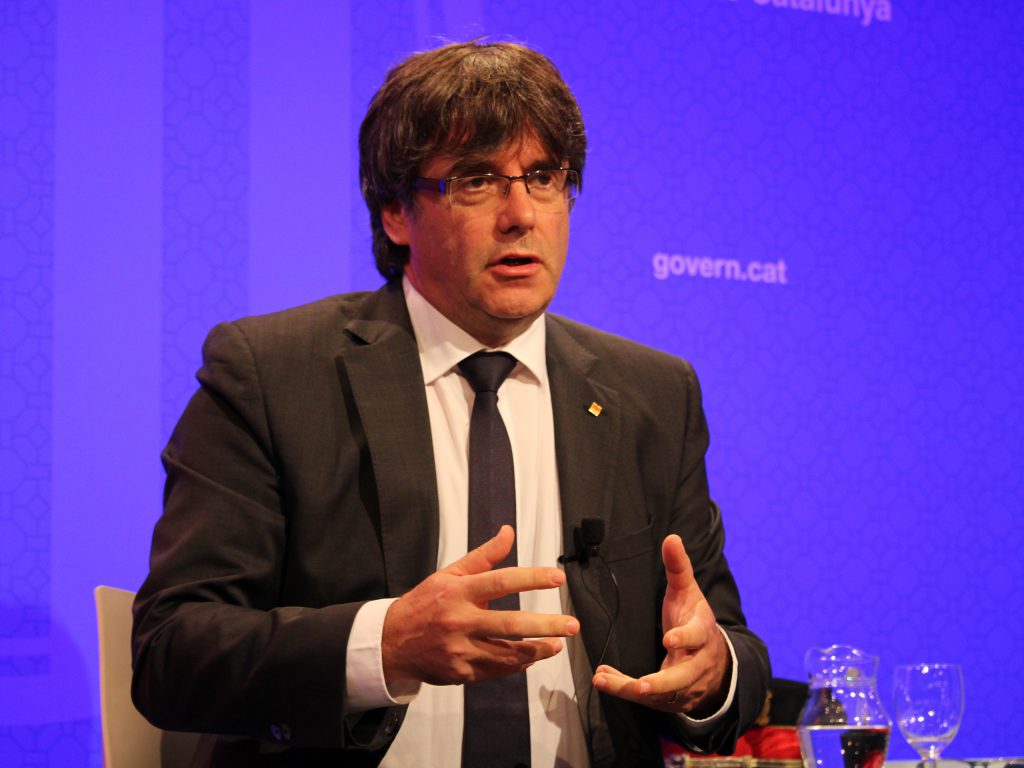
On 4 October 2021, Carles Puigdemont, former regional President of Catalonia, and leader of the Catalonian separatist movement, was released from a court in Sardinia, having been arrested, pursuant to a European Arrest Warrant (‘EAW’) issued in 2017, and detained in September 2020 by Italian police. Mr. Puigdemont is wanted by the Spanish authorities on charges of sedition, rebellion and misuse of public funds for his role in the October 2017 Catalonian independence referendum, and subsequent regional independence declaration.
The Italian court delayed its ruling on Mr. Puigdemont’s extradition, pending a decision by the European Union’s General Court concerning the status of his immunity against criminal proceedings. Under Article 9, Protocol 7 of the Treaty for the Functioning of the European Union (‘TFEU’), Members of the European Parliament (‘MEP’s’) acquire immunity when they take office. However, in March 2021, the European Parliament (‘EP’) voted to strip Mr. Puigdemont of this privilege, and asserted that the criminal proceedings against Mr. Puigdemont and two of his peers concerned opinions expressed, or votes cast before their appointments as MEPs, and therefore bore no relation to their roles as parliamentarians, only to their roles in the Catalonian separatist movement.
Mr. Puigdemont’s appeal against the vote, if successful, could see his immunity reinstated, effectively curtailing Spain’s continued efforts to extradite him. However, if Mr. Puigdemont’s appeal is rejected, the Sardinian court may consider there to be no barriers to Mr. Puigdemont’s extradition and proceed with the request.
Political Exemptions under the EAW
The subject of Mr. Puigdemont’s immunity, and the implications of his extradition should the EU Court uphold the EP’s vote are significant. Under the Framework Decision on EAW’s 2004 (‘2004 Framework’) there is no political exemption provision allowing for States to refuse to extradite individuals on the basis that they are only wanted because of their political affiliation.
However, Member States may refuse to surrender a person if they believe an EAW has been issued for the purpose of prosecuting or punishing a person on the grounds of their political opinions. There is also a general presumption that Member States will not abuse EU fundamental principles, such as mutual trust and rule of law, and will adhere to EU law, such as Article 6 of the Treaty for the European Union, which provides for the recognition of rights, freedoms and principles in the European Charter of Fundamental rights.
Mr. Puigdemont’s case, was considered previously in Oberlandesgericht Schleswig-Holstein 2018 (‘OLG’), when the Spanish authorities issued an EAW whilst Mr. Puigdemont was in Germany. The German court granted the Spanish request, but only on the grounds of misuse of public funds, and not for the crimes of sedition, for which the German court found there to be insufficient evidence, or for rebellion, which was considered not to exist as a crime under German Law, or to be made out under the closest German equivalents of Breach of Peace and Treason. Notably, as part of their judgment, the German Court asserted that the notion that the Spanish state would pursue Mr. Puigdemont to punish him for his political beliefs was unimaginable, and that it trusted that the Spanish Judiciary would not act contrary to EU law.
With the OLG case in mind, it may be that even if the European General court rejects Mr. Puigdemont’s appeal to have his immunity reinstated, his extradition to Spain may be considered by the Italian Judiciary to be contrary to his fundamental rights under EU law.
Tags: European Arrest Warrant, Mutual legal assistance Categories: Belgium, Germany, Italy, Spain



Recent Comments